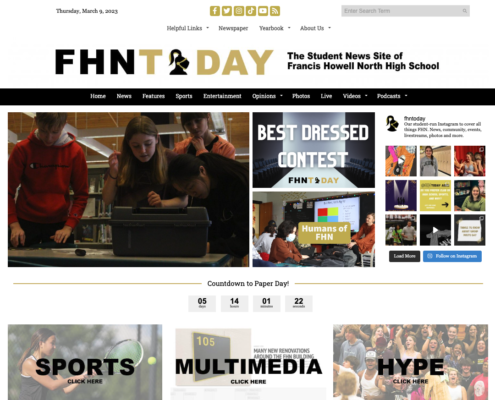The 30-Second Trick For Online News
Table of ContentsOur Online News IdeasThe Buzz on Online NewsRumored Buzz on Online NewsMore About Online News
Furthermore, we identified four specific sorts of news passion 4 teams of people with common repertoires of information tales they take a passion in. Each of these 4 arsenals includes a diverse diet of newspaper article that belong to several topic locations, crossing common classifications such as 'difficult' and 'soft' news, or politics and entertainment.To the level that reporters prioritise news tales with public worth, they should trust their impulses instead of counting on the undependable seismograph offered by 'Most Check out' lists. Regardless of well-publicised dangers to the news industry, participants of the public have actually never had extra news to choose from than they do today.
We make use of aspect analysis paired with extensive meetings to comprehend individuals's news selections in the terms they themselves utilize, exploring their feeling of news significance and the level of public interest it shows. Online News. Our method permits covert patterns in individuals's news tale preferences to emerge, without enforcing the classifications that scientists and journalists often consider granted
Online News Can Be Fun For Everyone
Checklists of 'Many Check out' or 'The majority of Shared' tales, as an example, are based on exposed information choices as gauged by click-through prices, time spent, or other forms of audience involvement with specific tales. Scientists have raised issues regarding the photo exposed by such data (e.g. Boczkowski and Mitchelstein 2013). Subjects like entertainment, celebrity, scandal, and 'strange news' dominate 'Many Read' listings, suggesting visitors de-prioritise the public affairs stories valued by journalists in favour of trivial stories with much less autonomous worth.

Finally, it is very important not to assume that all stories in the celeb and 'weird' classifications are democratically worthless. On the contrary, recent research study suggests that seemingly trivial news stories are occasionally read in methods that go across over right into democratic issues (Eide and Knight 1999) and might come to be a catalyst for public involvement (Papacharissi 2010).
We agree with Cherubini and Nielsen that 'all types of analytics need to challenge the limitations associated with making use of quantitative signs to recognize the unpleasant and diverse realities of exactly how individuals involve with journalism, why, and what it means' (2016: 34). As the following area lays out, this study is created to locate different methods for understanding people's rate of interest in public affairs news.
Fascination About Online News
Stories were also selected for potential lasting passion; damaging news can not be consisted of, considering that the research study was brought out over a number of weeks. This report attracts mostly on outcomes of the card sorting in phase 3. For this workout, each tale was represented on an easy card showing a heading and a short subheading, printed in a neutral font (see Box 1 and Appendix A).
Individuals were handed the 36 news story cards and asked to arrange them into three heaps: tales they would most likely intend to review if they discovered them on-line, in print, or on social media; tales they possibly would not intend to review; and in between a stack with stories they could want to find out this here read, time and place allowing.
They were likewise told they can alter the position of any kind of card up until the complete arrangement shared their information story preferences. When ended up, the grid therefore reflected individuals' ranking of each tale about the various other 35 newspaper article. Figure 2 One individual's ranking of the 36 information story cards in between 'Likely to check out' and 'Not most likely to read' By mathematically connecting the story positions of the 24 participants utilizing factor evaluation, we are able to determine 4 distinctive clusters of research participants whose information preferences were most similar.
For several, 'news' shows up to consist of both tough news ('the information') and softer varieties ('newsy points'). The ultimate moderator of whether they finish up engaging with tales is regarded significance, regardless of where the story drops on that continuum. Online News. Individuals in some cases locate it tough to come up with specific reasons they would certainly, or would not, check out a tale: what makes it pertinent or not is picked an instinctive basis
The Only Guide for Online News

(Elizabeth P15) Overall nonetheless, participants clarify their significance priorities quite lucidly as they sort the 36 newspaper article cards, and reveal an eager understanding of the business incentives that lead to the diverse news price they stumble upon everyday. As informative post one clarifies, So the most likely, for me, would be either things that are mosting likely to influence on me personally, or points that I have an energetic interest Visit Your URL in.
